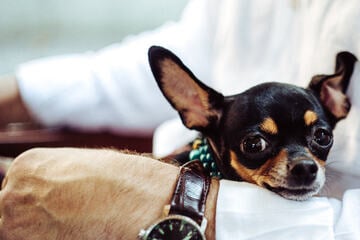How to take care of older dogs: Tips for managing senior pups
Dogs age much faster than people, and with their shorter lifespans come many complex needs. How should you take care of senior dogs, and what specifics do you need to think about? With this guide, TAG24 is here to help!
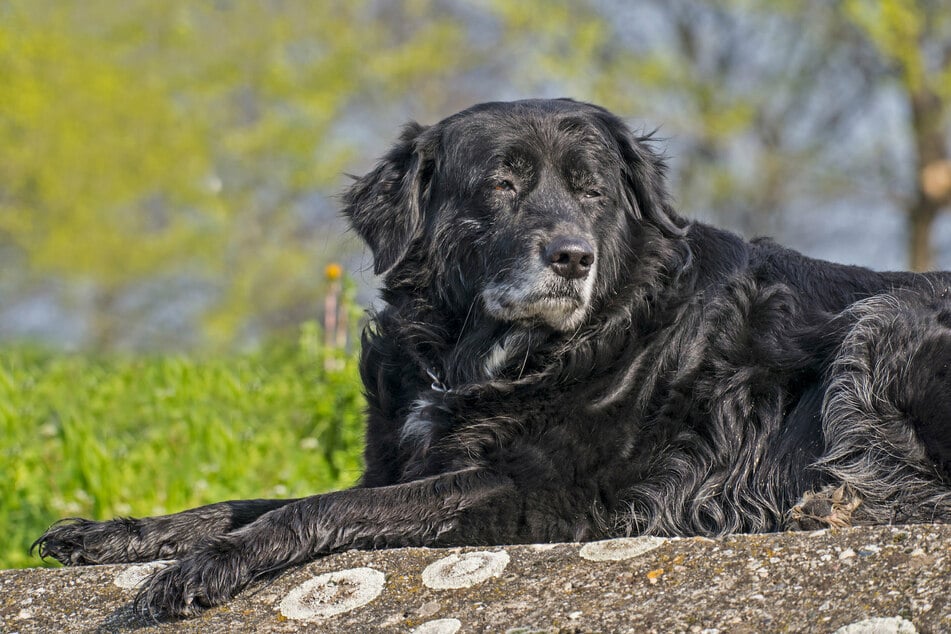
A dog's life expectancy is generally between ten and fifteen years, depending on their size and breed.
Funnily enough, while tiny dogs can seem less hearty than larger pups, they usually live longer than their bigger brother and sister dogs.
No matter what size, it's important to know how best to look after an older dog. The aging process varies from breed to breed, and can be difficult at times. No matter what type of dog, it's tough to see your pet's health deteriorate over time.
Here's how to get yourself prepared to care for a senior dog, so you can help your pup live their best life.
TAG24's got your back, so read on.
How do dogs age?
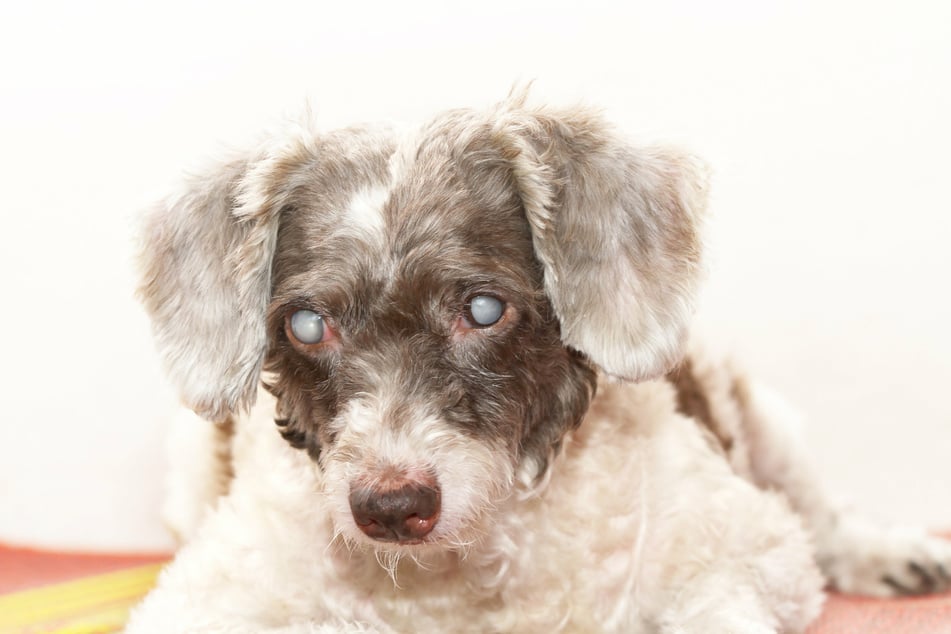
Dogs age slowly over time. While the process may be faster than with humans, it's not dissimilar.
Just like humans, as your four-legged friend ages, they can sometimes become increasingly frail, developing different needs and mobility difficulties.
It's important to recognize the signs of aging early, so you can be prepared to care for your older pup.
You may notice:
- Your dog's activity and energy levels are decreasing.
- Reduced movement can lead to weight gain, especially if the dog is eating normally.
- Alternatively, weight loss may occur due to a lack of appetite for food.
- Senior dogs become more susceptible to disease, for example - dental and joint problems, heart and kidney disease.
- Your pooch's sensory organs become weaker, reducing their ability to see, smell, hear, and taste.
- Their bladder muscles weaken, which can lead to frequent accidents.
- Many dogs will need more rest and sleep much more.
- Dogs' coats will also change color with age, with gray hairs often appearing around their muzzle.
- Senior dogs can sometimes appear confused or disoriented, and can even develop dementia.
Keep in Mind: If you notice these changes in your dog, a vet should be visited. These symptoms can develop further and, as in any case, it's best to seek their advice on how best to care for your now-senior dog.
At what age is a dog considered a senior?
Dogs are considered to be "seniors" at different ages depending on their size and breed.
In addition, the commonly held belief that one "human year" is equivalent to seven "dog years" is also inaccurate, because dogs develop much more rapidly in their first two years than in the remainder of their life.
So, when is your dog considered a senior?- Small Dogs are considered old when they are 11 or 12 years old.
- Medium Dogs are considered old when they are around 10 years old.
- Large Dogs are considered old when they are 7 or 8 years old.
Caring for senior dogs: Tips for older dog care
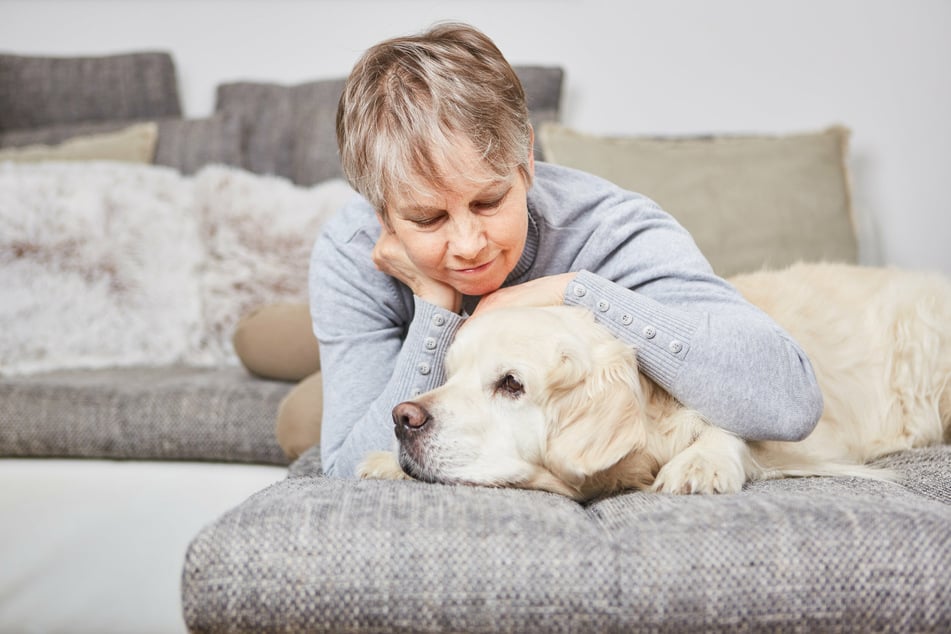
Every dog ages differently, requiring different needs. These needs should be respected and met by their human companions, whose ultimate responsibility is to make sure that their senior dog lives out the rest of their days happily and comfortably.
Here are some tips to help care for your senior dog:
1. Provide good nutrition
Senior dogs require very different food to younger pups. This is due in part to a significant reduction in the amount of exercise they are able to do, and also because of an increased need for specific vitamins, minerals, and proteins. Ask your vet for specific dietary recommendations based on your dog's breed and size.
2. Maintain movement
While senior dogs may not be able to do as much exercise as they used to, it's still incredibly important that they keep moving. Depending on your pooch's state of mind and overall health, you should make sure that you take them on plenty of walks. Those walks should be shorter and easier, with plenty of breaks, but should also be taken a little more often so that they keep moving but don't get too tired.
3. Promote mental wellbeing
Mental health and wellbeing is just as important for aging dogs as physical fitness. Speak with your vet about potentially picking up some stimulating toys so that you can play with your senior dog in a way that helps their mental reflexes and keep them healthier.
4. Keep an everyday routine
You should not overload older dogs with major changes. Instead, make sure that you maintain their everyday routines with increased accuracy, changing as little as possible during their last few years. This will make them much happier and will help them slowly adapt to getting older.
5. Give them extra love and care
Senior dogs deserve a lot of loving care and attention. Make sure that you are initiating plenty of heavy-duty cuddle sessions, and constantly checking their eyes, ears, teeth, and paws. Remember to keep trimming their nails and in general, take the time to be close with your canine companion, showing them the love they deserve.
6. Provide greater security and safety
As your dog's senses diminish, you will need to make sure that their environment feels safer and their walks are calmer. They will increasingly feel unsafe, especially on walks, so improving their home's safety is key. A dog owner should always take the lead when out and about, avoiding obstacles and keeping senior dogs away from potential dangers.
While on walks, senior dog owners should make sure to signal to other dog owners that their four-legged friend needs distance and calm. Some choose to attach a yellow ribbon to their dog's collar to let people know from a distance to take caution with the animal.
7. Avoid tripping hazards
To prevent collisions and possible injuries, objects such as shoes or boxes should not be placed carelessly around the house. In addition, sharp or dangerous items should always be kept away from the edge of shelves and tables. Your pooch might bump into things, and you don't want something dangerous to fall.
8. Regular visits to the vet
Last but not least, regular check-ups with the vet are extremely important. These check-ups will keep you up to date on all preventative examinations, special age screenings, and the necessary medications that you may need to start implementing for your pup. Senior dogs may start to develop things like painful joint diseases, heart and thyroid problems, and cancers. You can also get more useful advice on how best to care for your older dog.
Best dog aids for senior pooches
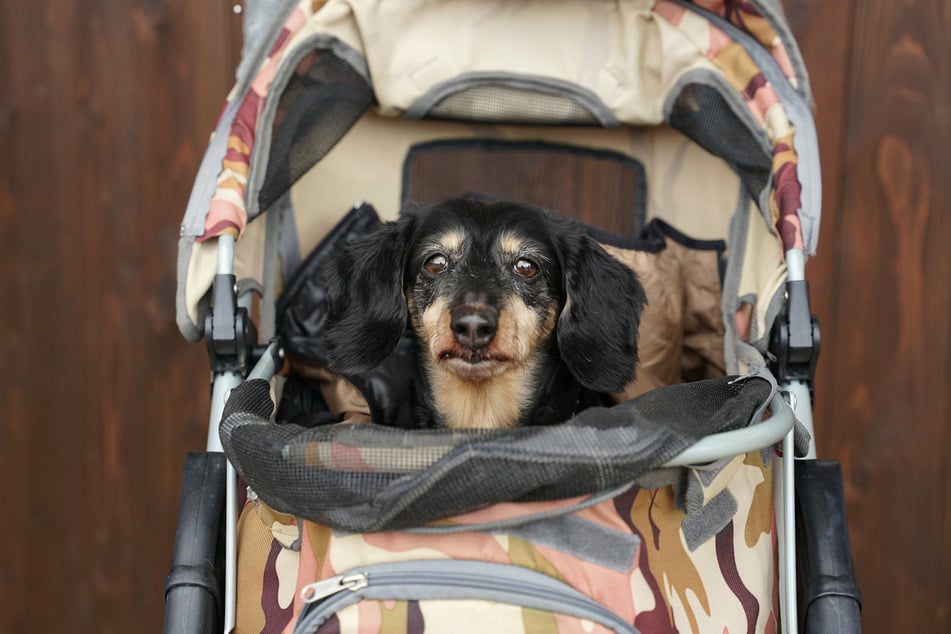
Senior dogs are going to need to be handled in a "age appropriate" way. This means that owners may need to install a few aids for the benefit of our four-legged friends.
Here are a few examples of things you may need:
1. Protection grids and stair gates
Once your dog is older, they may develop joint problems. If this happens, your poor pooch should no longer be walking up and down stairs. As protection, a gate should be installed at the top and bottom of your household stairs, as well as animal protection grids at locations of concern.
2. Dog ramps
Sometimes it's going to be necessary for dogs to ascend and descend. In these spots, a ramp should be installed for your dog. Additionally, if your dog often rides in the car, you may need a dog ramp to help them in and out, as they may not be able to safely jump the distance.
3. Carrying bags
If your pet can no longer walk, but needs to be taken for special activities or outside to get some fresh air, a special carrier bag or dog backpack can be purchased.
4. Protection from the cold
Aging dogs often don't have the best immune systems, and their bodies often don't regulate heat as well as they used to. As a result, your dog might get severely cold much easier. To combat this, functional dog clothing can be purchased to protect your pooch against the cold. This is especially important in winter.
5. Dog diapers
As dogs grow older, their bladder muscles may weaken. To make sure that your senior doggy has plenty of security for when they have to go to the bathroom, as well as to keep your home free of dog waste, it's advisable to purchase some dog diapers, firmly attaching them to your dog's backside for added safety and comfort.
Overall, it's usually best to let your dog age gracefully, comfortably, and happily. Allow them to adapt to their new reality, giving them new and easier daily routines, and providing them with everything they need to continue to live a long and happy life.
The long and winding road of the aging process can be tough for dog owners to handle, but the less traumatic it is for our little ones, the less traumatic it will be for us, too.
Cover photo: 123rf / Barbedur


